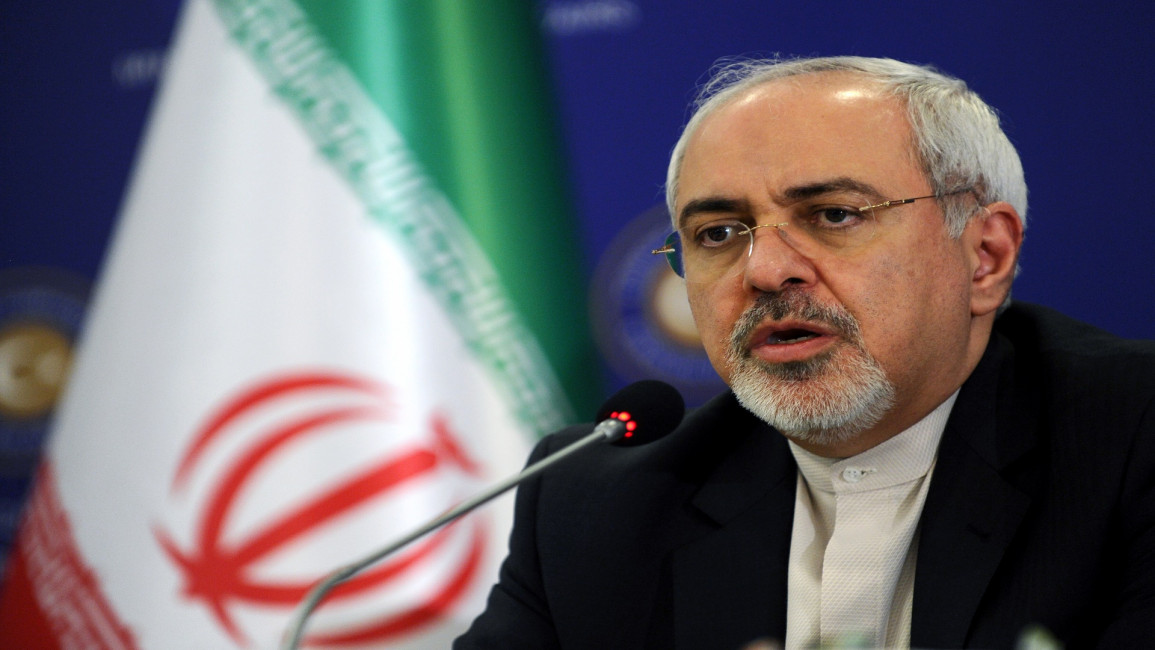Iran's Zarif in Lebanon, but Turkey trip 'postponed'
Iranian Foreign Minister Mohammad Javad Zarif is in the Lebanese capital, Beirut on Tuesday to stress that Tehran's stance towards Syria and Hezbollah has not changed, according to diplomatic sources.
Sources have said Zarif will send a clear message that Iran will not turn its back on Syria and Hizballah and that Tehran continues to back its allies in the region.
Zarif will also brief several high-profile Lebanese officials on the recent nuclear deal and relay Iran’s vision for the region, which is based on stability in Arab states, according to Mehr News Agency.
During the two-day official visit, Zarif is expected to meet with the Speaker of the Parliament, Prime Minister, Foreign Minister - as well as Hizballah chief Sayyed Hassan Nasrallah.
Many critics have said that a nuclear deal signed between Iran and major powers in Vienna last month will lead to a change in the Iranian stance.
Zarif’s tour of regional countries comes in the wake of the conclusion of nuclear talks between Tehran and the Group 5+1 (Russia, China, the US, Britain, France and Germany).
On July 14, Iran and the six powers finalised a nuclear deal that would get rid of all sanctions on the Islamic Republic. The UN Security Council also unanimously passed a resolution afterwards, endorsing the deal.
Zarif wrote an article that was published in several Arabic newspapers last week pushing for cooperation between Iran and its Arab neighbours to fight “terrorism, extremism and sectarianism".
“Iran’s top priority has always been seeking good, strong relations with its neighbours”, wrote the Foreign Minister backing up his argument with Quranic passages.
Tuesday’s visit to Beirut is as part of his tour of regional countries, the Iranian FM was also expected to visit Turkey and Syria.
A Turkish foreign ministry official has said that Zarif's visit to Turkey, during which he was expected to discuss the Syrian conflict, has been postponed.
The postponement of the visit came as Turkish opposition daily Cumhuriyet published a page-long article by Zarif written in apparent anticipation of the trip.
The newspaper is known to be opponent of the ruling Justice and Development Party (AKP) policies, with President Recep Tayyip Erdogan repeatedly locking horns with its editor-in-chief Can Dundar.
In the piece published Tuesday, Zarif criticised US policies in the Middle East, and blamed the emergence of extremist groups including the Islamic State (IS) group on US-led war in Iraq in 2003.
He wrote that the IS group was fed by the chaos and instability after the Iraqi invasion.
'Veiled criticism'
"Extremist elements found a convenient environment during the Syrian crisis with the support they received from individuals, organisations and governments in the region and turned into a giant structure in pursuit of fake causes and ideals," the minister wrote.
"Today, those elements are threatening even their own founders and supporters."
It was not clear if his comments were a veiled criticism of Turkey which has been accused of failing to do enough to halt the rise of Islamic State and even secretly colluding with the group. Ankara vehemently denies the claims.
A NATO member, Ankara had long refused to participate actively in the anti-IS operations led by the United States for fear of supporting the Kurdish fighters battling the jihadists on the border in Syria.
But it changed its position after a deadly bombing blamed on IS on July 20 in Suruc, a Turkish town opposite the Syrian flashpoint of Kobane, that left 32 people dead.
Last month Turkey agreed to open up a southern airbase to US and coalition forces for bombings against Islamic State militants.
Iran has urged Turkey to respect Syria's sovereignty in its bombing of IS targets.
In a telephone call with Erdogan last week, Iranian President Hassan Rouhani suggested that Turkey should "coordinate" attacks with both Syrian and Iraqi governments.
In the article, Zarif also criticised US-led "Greater Middle East" project for preparing the ground for military interventions in the region.
Turkey was once considered a key actor in the initiative during the presidency of George W. Bush, seen as a predominantly Muslim country with a working democracy.



